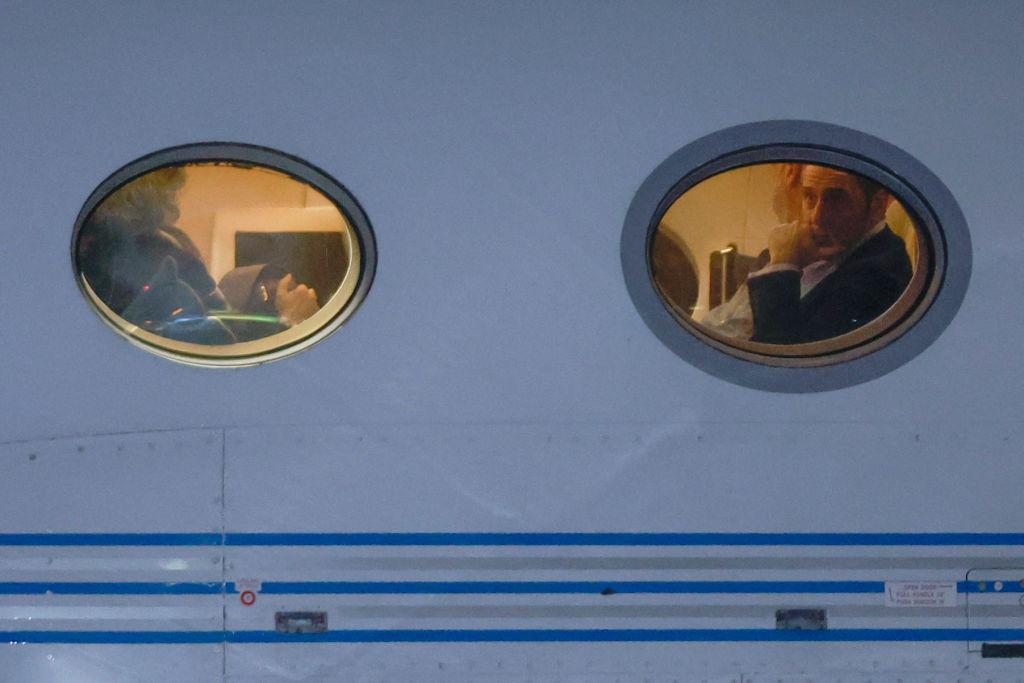Why Biden did a hostage deal with Iran
Posted By Rodger Shanahan on September 29, 2023 @ 14:30

The US has received plenty of criticism [1] for acceding to Iran’s policy of hostage-led negotiation for which Tehran has plenty of form. But there are a number of very knowledgeable Middle East hands in President Joe Biden’s administration with significant experience in the demanding theatre of negotiations with Iran. They include Biden himself, who was Barack Obama’s vice president when the Joint Comprehensive Plan of Action (JCPOA) was negotiated and signed. So, they are neither neophytes on this issue nor naive about the risks involved in achieving an obviously humanitarian outcome in this manner. Rather, to understand why the administration took this step it’s necessary to first understand how it viewed the detainee situation as part of its broader Iran policy.
First, the security priorities of both the Obama and the Biden administrations with respect to Iran have focused on counterproliferation. The JCPOA, as flawed as it was, represented the Obama administration’s belief that only a negotiated approach to limiting Tehran’s nuclear development program could work effectively. The unilateral trashing of the agreement under Donald Trump’s presidency provided the proof, if any was needed, of what Iran could do in the absence of any negotiated constraints on its program.
By contrast, Iran’s influence-peddling and military support for regional non- and semi-state actors represents a real, but nevertheless second-order, security priority. The prevailing political and social realities in countries such as Lebanon, Syria and Iraq mean that Iranian-supported groups are significant, if not the dominant political actors, and therefore eliminating Tehran’s influence is essentially impossible. Without changing the political system of the country or the behaviour of actors in that system, constraining Iran’s behaviour, rather than eliminating its influence, becomes the achievable short- and medium-term aim.
Given this, the Biden administration’s decision to secure the hostages’ freedom and to release Iranian funds frozen in South Korea is easier to understand. The release of detainees has been high on Biden’s list of priorities. As he said [2] in March: ‘Returning wrongfully detained and people held hostage—and particularly Americans and their families—is a top priority for this administration. And we’ll continue our work to bring home all Americans held hostage or unjustly detained.’
Nobody begrudges the fact that the detainees have been returned to the United States. Rather, the questions are whether the type of exchange that was undertaken should have been done, the price that was paid and whether this simply reinforces the utility of such a strategy in the eyes of the Iranians. The price paid was probably the least contentious—the difficulty with blanket sanctions against totalitarian regimes is that those who suffer are often the least culpable. The funds frozen in Seoul [3] were for Iranian oil imported by South Korea that hadn’t been paid for by the time Trump imposed his unilateral sanctions.
To the Biden administration, those funds were a casualty [4] of a Trump decision it never agreed with, so it doesn’t feel beholden to. The current agreement also requires that the disbursement of the funds will be overseen by Qatar and they will be used only for humanitarian purposes. Whether that is the case in practice will remain to be seen, but throughout all the years of sanctions against it, Tehran was still able to fund its regional activities and so the release of these funds is no game-changer.
As to whether the exchange will lead to more detentions of US citizens, it’s easy to make that argument because the logic appears straightforward. Yet the jury is out on whether this has been the case in the past (given the current detainee exchange is by no means the first of its kind [5]).
With that in mind, the Biden administration has taken a calculated risk while it continues to warn American citizens about the risks of travelling to Iran and the fact that Washington can’t guarantee their return if they are detained.
On the question of whether this swap should have been done (outside of the obvious benefit for the freed detainees), one must understand it as part of the broader counterproliferation policy of the Obama and now the Biden administrations.
If one accepts that the JCPOA was effective in limiting Iran’s nuclear program and the Trump policy of ‘maximum pressure’ achieved the exact opposite, then a negotiated limit to Iran’s nuclear program is the only real way to achieve meaningful counter-nuclear-proliferation outcomes with Tehran. And to get to the negotiating table, viewing the detainee swap as a preliminary step to such an outcome makes a lot of sense.
There has been media reporting [6] that Iran’s supreme leader has given approval for direct talks with the US on the issue, though both countries have denied [7] this report. Whether the restart of negotiations is possible therefore remains up in the air.
The Biden administration likely thinks the prisoner swap was worth trying as the only way of achieving its broader non-proliferation goal. But if it doesn’t establish the conditions for future negotiations, at least five people are no longer detained in Iranian prisons.
Article printed from The Strategist: https://aspistrategist.ru
URL to article: /why-biden-did-a-hostage-deal-with-iran/
URLs in this post:
[1] plenty of criticism: https://www.theatlantic.com/international/archive/2023/08/iran-evin-political-prisoners-diplomacy/675099/
[2] he said: https://iranprimer.usip.org/blog/2023/jan/23/comments-biden-us-officials-iran-2023#President-Joe-Biden
[3] funds frozen in Seoul: https://iranwire.com/en/economy/119470-what-happened-to-1-billion-of-iranian-funds-frozen-in-south-korea/
[4] were a casualty: https://www.washingtonpost.com/opinions/2023/09/18/iran-hostage-deal-brett-mcgurk/
[5] by no means the first of its kind: https://www.nbcnews.com/politics/national-security/america-makes-deals-prisoners-iran-biden-obama-trump-rcna105021
[6] media reporting: https://www.timesofisrael.com/iranian-leader-said-to-okay-direct-talks-with-us-on-reviving-nuke-deal/
[7] denied: https://www.voanews.com/a/us-iran-deny-secret-talks/7288188.html
Click here to print.